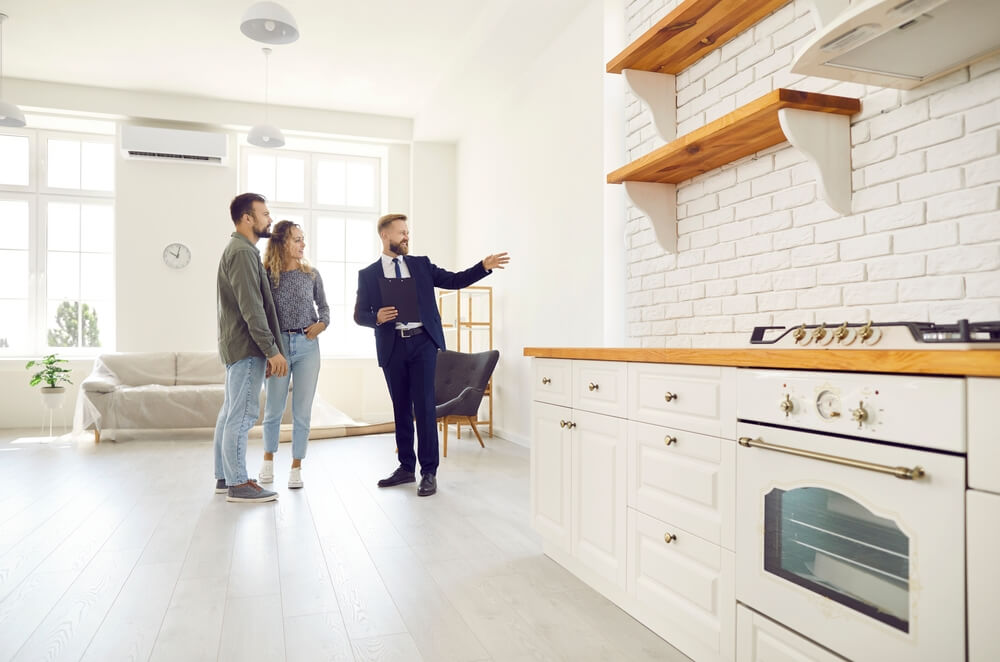If you’re thinking about becoming a homeowner, you’re probably wondering how much it’ll cost to buy your dream home—and how to save up that much cash.
Here’s everything you need to know.
What’s a down payment?
Anyone who wants to buy a property will need to make a down payment. Also named cash down, your down payment includes the deposit when your offer on the house is accepted. Once the contract is settled, the down payment is required in total at the completion of the purchase. This amount is deducted from your loan, which has the effect of reducing your mortgage payments.

How much for a down payment on a house?
The minimum down payment is based on the type of home you’re buying and the purchase price, and not your income nor your savings. In some cases, a higher amount may be required—for example, if you have a poor credit history or are self-employed. Nothing is stopping you from putting down more than the minimum amount of money.
If the purchase price of the home is $500,000 or less
The minimum down payment will be 5% of the property value. In the case of buying a duplex, the owner-occupants are also required to make a 5% down payment. However, if both units are being rented out, future owners will have to put down 20%.
If the purchase price of the home exceeds $500,000
The down payment for the property will be 5% of the first $500,000 of the purchase price, plus 10% of the remainder. For example, if you consider buying a home listed for $700,000, the down payment will be $45,000: that’s 5% of $500,000 ($25,000), plus 10% of $200,000 ($20,000).
For a property that costs $1,5 millions or more, the minimum down payment is 20% of the purchase price.
Is it better to put 5% or 20% down payment?
Future homeowners are free to make a bigger down payment than required. Of course, in many cases, coming up with that kind of money is no small task. Not sure if you want to continue to save for a large down payment or buy now and put only the minimum down? There’s no right answer, since the best choice depends on your personal and financial situation. Your Multi-Prêts mortgage broker can guide you through this decision.
Get more familiar with different scenarios with our mortgage calculator
The pros and cons of a 5% down payment
First of all, it’s important to understand that a 5% down payment makes it easier for you to go from a buyer to a homeowner. These days, with the surge in real estate prices in the housing market, buying sooner means you’ll spend less than if you waited a few years. Plus, you won’t need to pay rent every month.
If you’ve built up a nest egg that exceeds the required down payment, you can also invest it elsewhere to earn an attractive return, or set it aside for a rainy day.
A 5% down payment also has its drawbacks: your mortgage payments will be higher and you’ll have to pay more interest, not to mention the monthly cost of your mortgage loan insurance premium. In the end, it’ll likely take longer to pay off your mortgage than it would with a larger down payment.

The pros and cons of a 20%+ down payment
If it’s within your means, putting down 20% or more may be a wise choice.
A larger down payment demonstrates your financial capacity and good spending habits, which will boost your chances of getting a mortgage from your financial institution (a bonak or mortgage lenders). This is especially important if you have bad credit or are self-employed.
A 20% down payment will also reduce your loan. As a result, you’ll pay less interest, have lower mortgage payments, and ultimately pay off your mortgage faster.
Above all, you’ll save a good chunk of change since you won’t have a mortgage loan insurance premium to worry about.
At the same time, remember that putting 20% down will leave you with less cash for contingencies and other projects.
Do I need mortgage loan insurance?
The amount you allocate to your down payment will also have a major impact on the mortgage insurance premium you’ll have to pay to Canada Mortgage and Housing Corporation (CMHC), Genworth, or Canada Guaranty. This premium is designed to protect the lender against default in the case of mortgages with a down payment under 20%.
The cost of mortgage loan insurance
Mortgage premiums depend on the price of the property and that rate ranges from 0.6% to 4.5% of the loan. The higher your down payment, the lower your premium. You can use our mortgage payment calculator to get a better idea of how it works.
Your mortgage premium, along with the associated interest, will be added to your mortgage payments, which can add up to thousands of dollars. What’s more, in Quebec, QST must be paid at the notary’s office at the time of purchase.
Frequently asked questions about down payment on a home
How do I save for a down payment?
There are many options available to help you save for a down payment, including personal loans and savings. Creating a budget can help maximize your chances of success by giving you a clear picture of your finances and motivating you to adopt good habits, such as setting up automatic deposits into a savings account and cutting back on expenses.
Programs like the Home Buyers’ Plan (HBP) and the first home savings account (FHSA), as well as government and municipal programs and subsidies such as the First-Time Home Buyer Incentive (FTHBI) and the First-Time Home Buyers’ Tax Credit (HBTC), can also help you purchase your first home.
How do I buy a home if I can’t afford a down payment?
If you’re unable to make a down payment, you still have several options (article available in French only), including using a personal line of credit, an RRSP loan, or gifted money from a loved one. Reviewing your spending habits and establishing a savings plan are also fundamental steps towards achieving your financial goals and other projects.
Don’t hesitate to book a meeting with a Multi-Prêts mortgage broker for more information.
Key takeaways
- The minimum down payment for a property is based on the type of home and the purchase price.
- This amount is deducted from your loan, which reduces your mortgage payments.
- The amount of your down payment has a major impact on your mortgage insurance premium.
- There are many tools and programs available to help you come up with a down payment.

